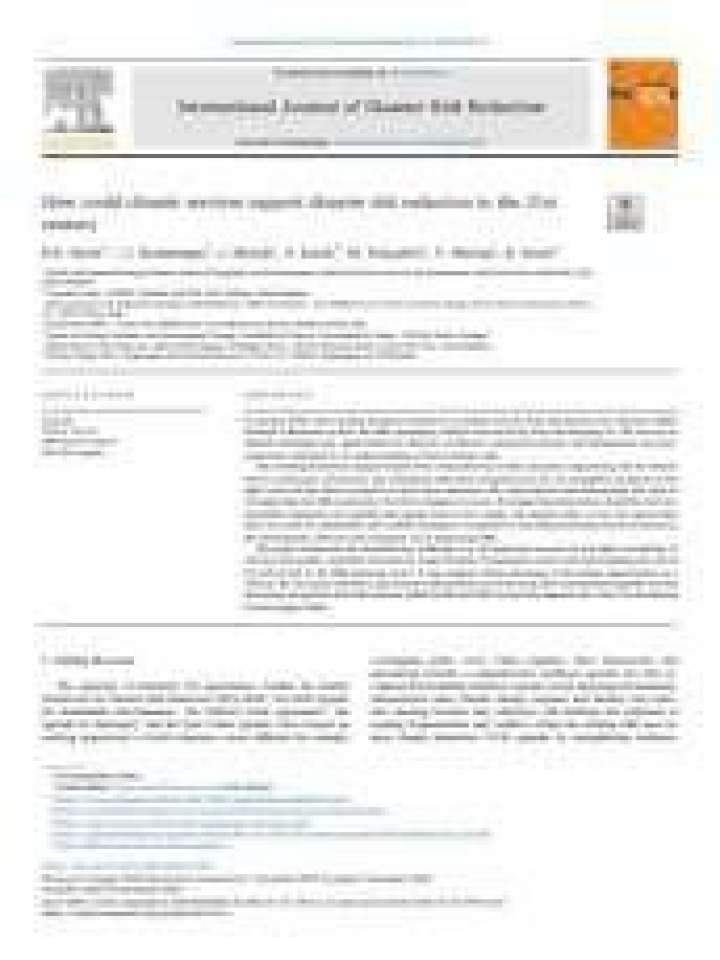How could climate services support disaster risk reduction in the 21st century
In January 2018, three leading European initiatives on climate services (CS) and disaster risk reduction (DRR) initiated a discussion on how the DRR community could be best served by new and emerging CS. The aim was to identify challenges and opportunities for delivery of effective operational disaster risk management and communication informed by an understanding of future climate risks.
The resulting discussion engaged experts from civil protection, health, insurance, engineering and the climate service community. Discussions and subsequent reflections recognised that CS can strengthen all phases of the DRR cycle and that there are lessons to learn from experience that could enhance and demonstrate the value of CS supporting the DRR community. For this to happen, however, the supporting information should be relevant, accessible, legitimate and credible and engage both service supply and demand sides. It was also agreed that there was need for identifiable and credible champions recognised as providing leadership and focal points for the development, delivery and evaluation of CS supporting DRR.
This paper summarises the identified key challenges (e.g. disconnection between CS and DRR; accessibility of relevant and quality-controlled information; understanding of information needs; and understanding the role of CS and its link to the DRR planning cycle). It also suggests taking advantage of the unique opportunities as a result of the increased coherence and mutual reinforcement across the post-2015 international agendas and the increasing recognition that links between public health and DRR can provide impetus and a focus for developing CS that support DRR.
Explore further
